The Princess’s Man: Series review
by javabeans
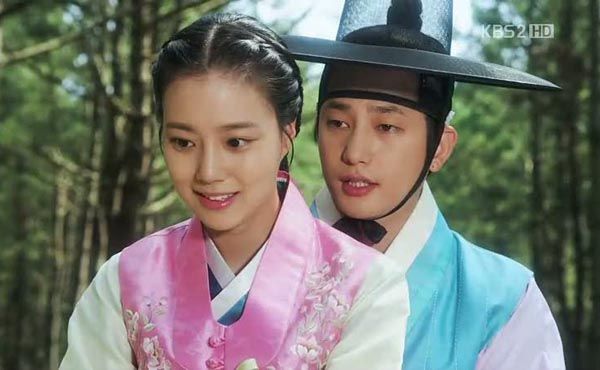
Epic, moving, suspenseful, and superbly paced. If I were limited to only a handful of words, that’s how I’d describe The Princess’s Man, KBS’s romantic melodrama and premium sageuk from earlier this summer. Then again, I’ve never been good with brevity and I do have an open-ended word count available, so let’s cut to the chase and get right to it. Sit back and settle in; this may take a while…
SONG OF THE DAY
The Princess’s Man OST – “Destino (운명)” [ Download ]
Audio clip: Adobe Flash Player (version 9 or above) is required to play this audio clip. Download the latest version here. You also need to have JavaScript enabled in your browser.
The Princess’s Man has been touted, more than anything, as a Joseon-era Romeo & Juliet story, but there’s another Shakespeare analogue that’s just as apt: Richard III. While the Romeo & Juliet comparison is certainly appropriate given the star-crossed-lovers premise, it almost does the drama a disservice in reducing the plot down to a simple idea when it’s really about so much more. There’s political intrigue that’s fast-changing and compelling — not a bunch of static discussions held around a round table for episodes on end — in addition to a central romance that has me fully invested on both sides, backed up not only by attraction and passion but also steadfast ideological integrities. That’s pretty rare, but it makes for such an engaging conflict that’ll have you on the edge of your seat, possibly biting fingernails.
A few misconceptions had me initially wary, but to clear one big one up off the bat: This drama is not depressing. There’s conflict and angst and romantic tension, but it’s not drawn out in a gloomy, mournful way. Some of the circumstances are tragic, inasmuch as any murder and betrayal can be tragic (and there’s lots of that here), but I’d characterize the tone of The Princess’s Man much more along the lines of gripping and sweeping and artfully suspenseful, rather than grim and dire. Also, addicting as hell. (Word of warning: You may want to download all the episodes before starting.)
Note: There will be spoilers. Not every plot point is discussed so those who still want to see it should be able to, if you don’t mind some spoiling. For those who’d like to keep the ending a mystery, though, I’ve separated out the ending discussion so you can skip that section.
THE HISTORY
One of the things this drama does so well is in creating its fictional world within the existing history. The drama’s narrative takes plenty of creative license with the details, and each episode is preceded by a huge honkin’ “We realize that history has been tweaked for entertainment purposes!” disclaimer, so don’t expect this show to hew strictly to facts. What it does is use a famous coup as the jumping-off point for its narrative, fictionalizing the central love story around the real-life political upheaval of the time. A number of characters in the older generation are real historical figures, but their children’s generation — our lead characters — is where the fiction takes over.
In that sense, if real-life history is like a map, then The Princess’s Man is like a sheer layer of fabric laid over the map featuring a complementary pattern. You can recognize the general outlines of the map through the top layer, giving us a peek at the truth while presenting fiction.
The central historical event on which this drama is based is the usurpation of the throne in 1453 by Grand Prince Suyang, posthumously known as Joseon’s seventh king, Sejo. Suyang was the second son of King Sejong the Great, whom you may recognize as the main character in the currently running sageuk, Tree With Deep Roots. At the time, Joseon was still a relatively new state, sixty years in, having taken over from the almost-500-year span of Goryeo before it.
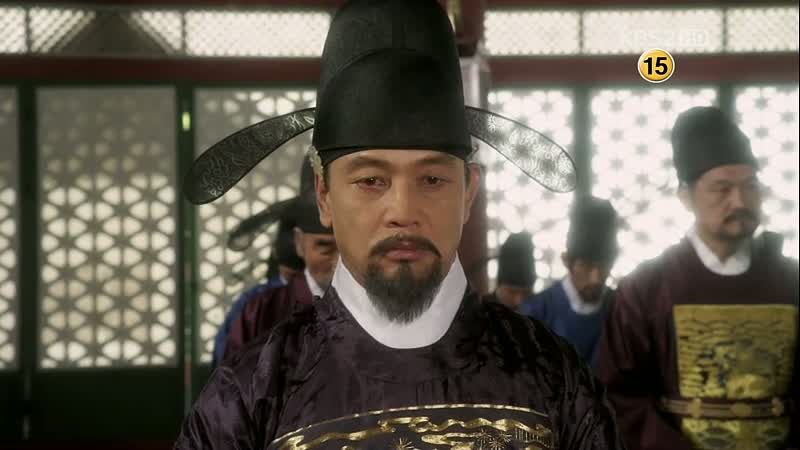
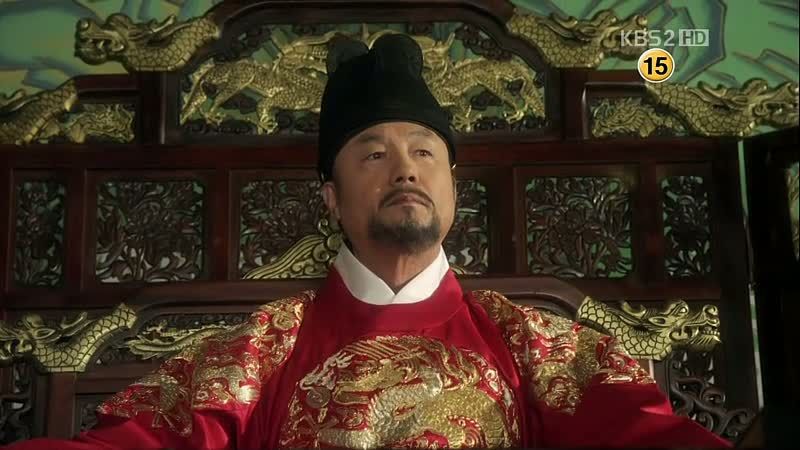
Crafty Suyang, plotting against his brother King Munjong
Sejong had a number of children, but we’re primarily concerned with his eldest two sons. Firstborn Munjong sits on the throne at the drama’s outset, and next in line is his adolescent son and crown prince, Danjong. However, times of transition are particularly unstable when you’ve got (1) a weak king sitting on the throne, (2) a weak successor, and/or (3) an ambitious plotter in the wings wanting his own shot at the crown. In the case of Suyang, all three are true.
Munjong has only been king for two years and his son is still young and inexperienced. Suyang aspires to the throne himself… and the only way to achieve that in this day and age is to get rid of those who stand in your way. Thankfully, he’s not averse to a little bloodshed. Well, thankfully for him; the piles of bodies littering the ground in his wake might think a little differently.
Suyang commands quite a bit of political clout, but he’s not without obstacles. The biggest threat is Kim Jong-seo, the venerated government minister who has both the authority and the balls to stand up to Suyang when others cower and crumble. That threat will have to be neutralized.
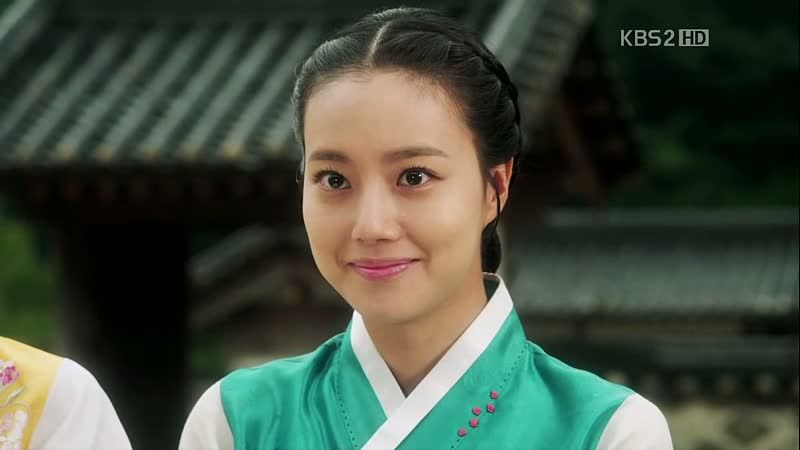
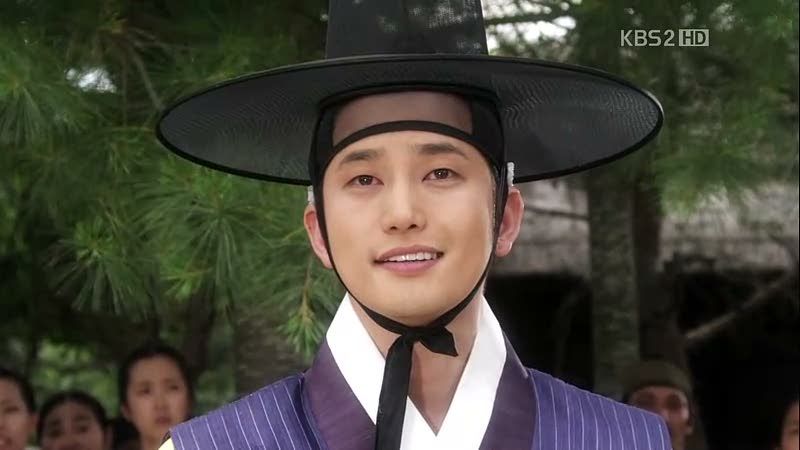
The young lovers: Lee Se-ryung, Kim Seung-yoo
All the above is factually true, but what happens when you throw a (fictional) wrench into the works, by making Kim Jong-seo’s son fall in love with Suyang’s daughter? Things, to put it simply, get complicated.
Those of you familiar with British history may see where the Richard III comparisons come in. Richard III, you may recall, also aspired to a throne that wasn’t his. The younger brother to a king, Richard took up regency of his young nephew when his brother died and passed the crown to the child. He had the boy declared illegitimate, deposed him and locked him in the Tower of London with his brother, where the two Princes in the Tower later died.
This isn’t to say that the story of The Princess’s Man is inspired by Richard’s history or Shakespeare’s play, since chronologically speaking Suyang/Sejo came first. (Richard III was born the year before Suyang’s usurpation, in fact. Hm, must’ve been something in the water in that bloodthirsty 15th century.) It’s just for comparison purposes that I bring it up, since the Romeo & Juliet logline has overshadowed this other correlation.
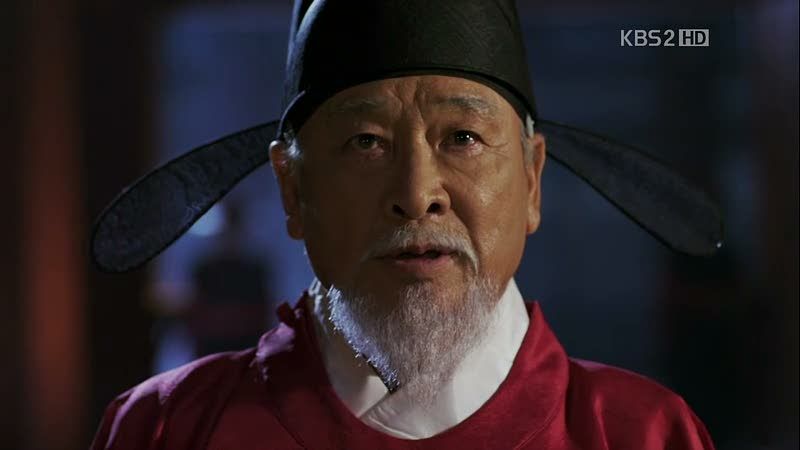
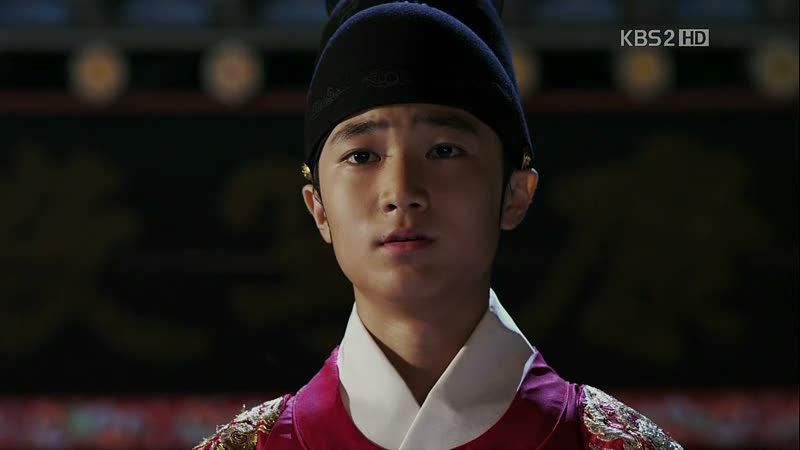
Righteous Kim Jong-seo, teenaged King Danjong
THE STORY
At the drama’s outset, King Munjong is ailing in secret, and because he trusts his brother Suyang (acted by Kim Young-chul) about as far as he can throw him, he’s particularly worried about creating a stable political environment for his son to inherit.
That fear is well-founded, since Suyang is busy orchestrating political machinations. As a way to keep his enemy close, Suyang approaches his biggest rival, Kim Jong-seo (played by Lee Soon-jae), with the proposal to betroth their children: Suyang’s beloved daughter Se-ryung (Moon Chae-won) with Kim’s son Seung-yoo (Park Shi-hoo). Kim Jong-seo is wary of Suyang, suspicious of his motives, as well he should be.
The initial meeting between Se-ryung and Seung-yoo is well-crafted, in that it takes a simple circumstance and twists it and weaves it inextricably with the core of the plot: Se-ryung hears that Kim Seung-yoo is her potential future husband, so when she learns that he has been appointed the new tutor to her cousin, Princess Kyung-hye (Hong Soo-hyun, who’s electric), Se-ryung decides she wants a peek. The girls swap clothes and trade places for the day, and her first impression is not good: She finds Seung-yoo both pompous (he lectures her on edicts, such as how women ought to be men’s shadows) and profligate (he comes to the session bearing a lipstick mark on his cheek, remnants of a drunken night at a gisaeng establishment).
They both decide they don’t like each other, but it’s not long before their aversion turns to interest, then attraction. But things get complicated mighty quickly, and the initial lie about Se-ryung being the princess — made with such silly, light intent — soon spirals far out of control.
It’s an example of the well-constructed nature of the plot, because things in this drama don’t happen without reason, without consequence. Everything has an effect on something else. Their meeting is such a simple issue — including a simple lie — that grows and entangles so thoroughly that the conflict that it sets off becomes an impossibly knotted problem.
The complication? King Munjong hears about Suyang’s secret maneuverings and decides to cut off the threat at the knees — by announcing that he has picked Seung-yoo to marry Princess Kyung-hye. Potentially dangerous union averted.
Se-ryung doesn’t know this and continues to fall for Seung-yoo believing him to be her future husband… while Seung-yoo feels free to fall for Se-ryung, because he believes she’s the princess and therefore his future wife. They continue to meet (often by chance), and the attachment grows quite strong before anybody catches wind of it. Seung-yoo continues to believe she’s someone else, and every time she tries to reveal the truth, she’s prevented.
And while these two are falling in love, Suyang is busily plotting against Kim Jong-seo. Here’s one reason this drama goes beyond the standard Romeo and Juliet story, because we’re given a greater understanding of the enmity between sides, other than just being told that Montagues and Capulets have been sworn enemies for generations. By the time the plot is in full swing, it’s completely clear why the lovers cannot be, juxtaposed with that wistful feeling of “It could have all been so easy” — because given a different circumstance, they would have been married and been perfectly blissful. We feel even more for their plight because we witness the couple’s love and their parents’ strife simultaneously hurtling toward opposite extremes, giving us a growing sense of foreboding as the stakes keep getting upped, and upped, and upped.
For instance, Suyang first does damage to the Kims on a smaller level and forces Kim Jong-seo’s resignation, but that’s not enough. Kim is a formidable man, and he counters Suyang’s power plays so solidly that the only way for Suyang to succeed in his coup is for Kim Jong-seo to die. Also Seung-yoo.
Therefore, he assembles his conspirators with promises of richly rewarding them when he becomes king. One of his recruits is the police chief, Myun, who will play a key role in the coup… and who just happens to be Seung-yoo’s best friend. Myun does not take lightly the burden of killing Seung-yoo’s father — or Seung-yoo himself. However, he finds himself between a rock and a hard place, because if he chooses not to join Suyang, he will be opposing (and perhaps killing) his own father.
There’s one more thing to sway Myun to the dark side: Suyang promises to give him his daughter in marriage, and Myun has been coveting his friend’s sweetheart from afar — even as he knows that Seung-yoo doesn’t know who she really is, and refrains from telling him the truth.
The initial lie twists again when Seung-yoo finds out Se-ryung isn’t the princess, but then believes she’s a lowly orphaned court lady. His engagement to the princess has been called off and he even considers marrying Se-ryung anyway despite the class divide, and therefore it may seem frustrating for Se-ryung to keep her identity quiet. But the drama does a convincing job of explaining why she must keep quiet, so that you’re simultaneously yelling at your screen, “Just tell him! No, you can’t tell him!”
In a nutshell: If she reveals her identity, she endangers her family. What started off as a little girlish prank now takes on dire undertones, because this younger generation is unwittingly drawn in to the political intrigue of their parents’ generation. A girl swapping places with her cousin is innocent. But the daughter of Scheming Politician impersonating the Princess, and consorting with the Princess’s Fiance? Suddenly the issue takes on grave implications and you’re just one secret away from branding your family traitors.
Actual treason wasn’t necessary to be punished as such, since you could kill first, trump up charges later — one of the benefits of surviving to rewrite history. (Which was Suyang’s basic mantra in accusing his opposition of being traitors in order to be rid of them.) In these volatile times, an accused traitor not only forfeited his own life but also his family’s. How could she tell the truth and sentence her family to death?
Even so, heroines have their secret-keeping limits, and Se-ryung is well-written in this aspect. Just when you start to worry that she’s being stupidly noble, or creating bigger problems with her silence, she decides to step up and do the right thing. Case in point: Se-ryung believes her father to be good and noble, because he’s always been the doting father. She is blind to his dark side, but finally she can’t deny it when she overhears him talking of his plans to murder Kim Jong-seo’s family that night.
Her family already knows she’s in love with Seung-yoo and her first attempt to warn his family fails, so they keep her locked up so she won’t interfere. She’s forced think of an alternative and writes a note in her own blood to draw Seung-yoo out of his house, desperate to save at least him, if not his household.
When Suyang’s coup is launched (resulting in what is now known as the Six Martyred Ministers), the romance becomes doomed — because no matter how virtuous Se-ryung is, she’s still the daughter of the man who massacred Seung-yoo’s family. Some things you just don’t get over.
This is the same conclusion Seung-yoo draws when he finally discovers Se-ryung’s true identity, just moments before he attempts to kill her father. He has managed to survive thanks to Se-ryung’s interference, but he’s been badly wounded and left for dead. His feeling of betrayal is compounded because he believes Se-ryung used him all along, that she was being used by her father as a tool in killing his. He doesn’t know the extremes to which she has gone to save his life, defying her own family and risking her own safety, and even when she knows he hates her, her primary focus is to keep him alive. Even if they cannot be together, she is determined to keep him from being executed by her father.
One of the addictive elements of the drama is its artful pacing, and the way it manages to keep you on the edge of your seat. Se-ryung’s actions escalate in accordance with her father’s, and as he marches closer to the throne with more murders, she grows more daring in her attempts to save Seung-yoo. It’s one way that the character Se-ryung showcases a thoroughly modern type of courage and pluck, while operating within the framework of the times. She laments at one point, Why do I have no power? How can I save him? This forces Se-ryung to become creative, and it keeps us guessing, because we’re lamenting the same thing.
The drama backs its characters against stone walls with no obvious way out, keeping us guessing until it produces a solution. Se-ryung is only one person, and how will she be able to succeed against an army? After all, Suyang is hardly going to let a daughter, no matter how beloved, deter him from his lifelong ambitions.
Se-ryung finally does shock Suyang by wielding a sword to her throat and declaring that the moment she hears Seung-yoo has been executed, she will turn the blade on herself.
What I love about this moment is that despite the heightened drama of the action, Se-ryung is not doing this in a fit of histrionics. Nor is she bluffing to scare Dad into compliance. She’s dead serious, but not in the “If you kill my love, I’m just going to DIE!” way.
Rather, she is taking an ideological stance: Her father has shed copious amounts of blood and is no longer affected by death, so she will get through to him with one that does shake him. If he is directly responsible for killing his own daughter, that’s one death he won’t be able to shrug off and forget. This would finally be a death that matters to Suyang, and it’s here that the drama takes the dramatics of Romeo and Juliet’s double suicide and twists them effectively. This isn’t just blind love talking; it’s also a moral stance, a daughter’s last-ditch attempt to recover the father she knew to be upright and good.
She proves her point, Suyang backs off, and Seung-yoo is spared. But shifty Suyang manages to find a way to have his cake and eat it too: He sends Seung-yoo to be shipped to exile, thereby appeasing Se-ryung — and then orders the ship sunk. Seung-yoo is believed to be dead but escapes with a group of prisoners, and what ensues is a Count of Monte Cristo-an tale of revenge as Seung-yoo returns to the capital with a new mane of glory to match his new attitude — bitter, seething, vengeful — and sets out with one goal: Kill Suyang.
Speaking of whom: Another of the drama’s fortes is in its depiction of Suyang’s twisted but also very human psychology. The historical Suyang has an interesting duality in that his usurpation is viewed negatively, but his reign as king was marked by a number of positive advancements. (In the words of my mother: “We call him Suyang when talking about all the bad stuff he did, and Sejo when talking about the good stuff.”) As a drama villain, he’s a complex character who manages to be somewhat accessible even as he’s out killing, maiming, and overtaking. I wouldn’t go so far as to call him sympathetic, but there are flashes of humanity that make him interesting.
For instance, there’s a moment when Se-ryung tells her father that she’s proud to be his daughter. He beams with pride, even as he turns around and plots to use her as a tool in killing Kim Jong-seo. His love for his daughter is never enough to thwart his aims, but it does sour the victory. The more he takes through wrongful means, the more Se-ryung’s respect drops. The drama can’t entirely thwart history by giving Suyang the end he probably deserves — this ain’t Tarantino, after all — but it does show us that he paid a price.
In fact, even after Suyang has become king and gotten what he wants, his daughter’s reaction makes him second-guess himself and wonder if what he did was really so bad. It’s a laughable statement given the rivers of blood running through Hanyang, but poignant in how he arrives at that point.
One of the things I really love about The Princess’s Man is the character of Se-ryung, who demonstrates integrity and character that you don’t necessarily think she possesses at the outset. I don’t think Moon Chae-won was the best actress for this role, but her character won me over so much that I was able to overlook her horrible sageuk diction.
(To put the accent in comparable terms, think of a modern teenager, like, acting in like a total Shakespeare play and stuff. It’s jarring and completely takes me out of the moment, which is unfortunate, but ultimately the story sweeps you up in its thrall. Moon does improve as the series goes on, and while she never becomes good at sageuk-speak, at least it’s better than the early episodes where she’s outright terrible. In her favor are her facial expressions and demeanor, and she’s emotive and convincing particularly in the latter stages; it’s just that her speech is her big flaw. Kinda like Lina Lamont in Singin’ in the Rain.)
But back to Se-ryung: As the series progressed, I found myself increasingly impressed with her, especially given how she started out — cheery, naive, sheltered. The more corrupt her father becomes, the stronger her opposition to him grows. She’s not obnoxious, just firm. Other heroines may be smart or pure or sweet: This girl is pure guts, and I love that.
The drama’s depiction of all the characters’ growth is well-done, but particularly so with her. On one hand, you sort of want to weep for their loss of innocence, and yet it’s the tribulations that forge them into the strong, honorable people they eventually become. Even Seung-yoo begins the drama in relative frivolity, drinking and joking and content in his privilege. It’s the trials they face that prove their integrity underneath that initial soft exterior.
So I love that she’s bold and courageous. Thus the drama gives Se-ryung agency in a world where women had very little. She can’t wield a sword and fight, and she has no political power, but she picks her battles and refuses to compromise her values of honor. She takes a stand for what’s right and makes use of every tool in her power to help. It’s a tricky balance, because while we applaud heroines who fight for love and justice, it’s also hard to applaud a heroine who could actively fight against family, no matter how corrupted. It’s just not the Confucian way. Filial piety is paramount, over romantic love or personal desires.
So it’s to Se-ryung’s credit that she manages to make her disapproval crystal clear, yet without entirely disrespecting her parents. Even when her father becomes king, she rejects the title of princess, though not in a loud, theatrical display. For instance, in one scene she is about to be introduced as princess, but cuts off the speaker to introduce herself as Se-ryung, circumventing the title she cannot in good conscience take. People do call her princess and she learns to let that battle go eventually, but it’s meaningful when she tells her father — whom she continues to call Father rather than the term she is expected to use, for the king — that she will not recognize any princess in the land but Kyung-hee.
Speaking of whom, it would be remiss to ignore Princess Kyung-hee, who positively shines. Or rather, actress Hong Soo-hyun does, reinventing her lackluster earlier career with this one commanding role, equal parts pride and vulnerability.
Kyung-hee spends her days cooped up in the palace walls and has a fondness for collecting ornaments and accessories and caged birds, reflective of her own state in the gilded cage of a palace. And although her sisterly relationship with Se-ryung sours as Suyang begins his takeover, the series does a solid job in playing this out believably. Even though she accuses Se-ryung of being happy about Kyung-hee’s broken engagement to Seung-yoo, she’s not lashing out at Se-ryung out of jealousy or petty vindictiveness, but because she’s genuinely frustrated that Se-ryung refuses to see what everyone else does: That Suyang is out to usurp.
Another series highlight is Kyung-hee’s relationship with Jong (Lee Min-woo), the husband that is picked for her after Seung-yoo is rejected. Jong happens to be Seung-yoo’s best friend (along with that traitor Myun), and has a wonderfully gentle, playful nature. He’s thrilled to be marrying the princess, but she complies only out of duty to her father’s dying wishes and keeps Jong at arm’s length, a husband in name only. Given that their first encounter is unflattering to him (he’s being chased by debt collectors), Kyung-hee maintains a negative impression of him, and he patiently does what he can for her while respecting the boundaries she erects.
What’s beautiful about this relationship is that Jong never has a chance to prove that he would be a good husband to her, so he proves it by just being a good husband to her. It kills me, this gradual blossoming. He’s constant and faithful and always on her side, and by degrees Kyung-hee starts to see his good nature shining through. He doesn’t do things to earn her good favor, he just does them because he’s there for her and he loves her.
When she realizes her feelings and admits them, it’s framed in the context of him having become indispensable to her; perhaps she doesn’t know how or when it happened, but one day she looks around and realizes he’s always been there. In one of the drama’s most romantic moments (to me), Kyung-hee marks the shift in their relationship by calling him, for the first time, “husband.” Just as nomenclature is important to Se-ryung who deliberately avoids calling her father the word for king, Kyung-hee has called Jong by a formal term, and it’s not until she calls him the common word for husband that he truly becomes one to her.
Of course, part of the reason that love relationship is so strong is because their ideals are aligned. I love that The Princess’s Man does this with Kyung-hee and Jong, as well as Se-ryung and Seung-yoo. I confess I probably would have found it tedious after a number of episodes if all this drama were focused purely on the angst of the Romance That Cannot Be. There’s only so much pleading, “But I love him!” that you can take before it starts to grow wearying.
But the romance is inextricably tied into the fight for justice; Se-ryung is fighting to get Suyang to stop the killing as much as she fights to keep her love. When Suyang later accuses her of plotting against her own father (“And all for a man!”), she counters that she has never wished harm for her father, and merely wished for the bloody mayhem to stop, and for the return of the father she once knew.
Even with all this, though, our Romeo and Juliet are still at odds; she loves him, while he fights his love for her with reminders that he needs to avenge his family’s murders. At several points, he is urged to just take Se-ryung and run away, but he can’t give up on his work — especially when he is committed to the bigger fight to topple Suyang. It’s no longer just about personal vengeance, but a greater injustice.
It’s only after Se-ryung finally cuts ties with her father that this obstacle is removed. If she had disowned her father earlier on, aside from lacking material for a 24-episode drama, it would have seemed precipitate: Oh, you can cut out your father just for a man?, just as he accused. But the drama gradually intensifies Suyang’s moral descent until Se-ryung can’t be a part of this family any longer; it’s not romantic attachment driving her, but her own code of honor.
Only then can Seung-yoo accept Se-ryung without qualms, and they declare themselves married with an exchange of rings. When they tell each other that “we are one body now,” they refer to their unity of purpose as much as their marital state.
It’s because of their mismatched values (well, among other reasons) that Myun is doomed to forever stare at Se-ryung’s back. He’s willing to compromise his ideals in getting what he wants, whereas she would never abide that in him.
It’s significant that Myun sees her as an object to possess, and in fact what initially gets him to choose Suyang’s side is Suyang whispering into his ear like a devil on his shoulder, saying that Se-ryung is his promised bride and that he ought to consider her above his old friend. Suyang has cleverly reframed the issue in Myun’s mind: She isn’t your friend’s woman that you want for yourself, she’s yours and you need to protect your own. Ergo, join me and kill Seung-yoo. Even later in the series after it’s clear she’s committed herself whole-heartedly to Seung-yoo, and that she’d rather die alone than take a husband other than him, Myun growls at her, “You are mine.”
The drama offers an interesting examination into the nature of friendship with the trio of Seung-yoo, Jong, and Myun, with Jong being the most idealistic, Myun caving to seflish pragmatism, and Seung-yoo somewhere in between, though closer to Jong. I do appreciate that Myun isn’t an outright villain, however. Like Suyang, I never quite feel sympathetic toward him, but I see him more as a weak human than an evil one.
Despite what I said previously about Myun joining Suyang under duress, in the end it is his choice, no matter how he frames it for his own conscience. For instance, early on when the friends first start to take divergent ideological paths, there’s a moment when Seung-yoo suffers at the hands of the opposition. But he offers to put their fathers’ politics aside so as to relieve Myun from feeling guilty for his father’s role in it. When the situation is flipped, Myun can’t extend the same generosity of spirit.
Myun declares time and time again that he will kill Seung-yoo, especially as Se-ryung’s rejections of him grow colder, with such frequency that it’s almost funny (seriously, you should make it a drinking game). But in the end he can’t do it, on multiple occasions. I don’t think that excuses any of his decisions, because he was willing to contribute to Seung-yoo’s death even if he couldn’t deliver the deathblow, but it shows that he’s not actually content with his choices.
I appreciate that he’s conflicted about his choices, even as he goes and makes all the wrong ones, and you can see that he’s haunted by them. His old teacher urges him that it’s not too late to be a friend to Seung-yoo: “Be friends who save each other.” And in the end, he can at least do that much; it’s not full redemption, but gives complexity to his inner struggle. Which is why you can make an argument for Myun’s humanity, but not his nobility.
The Princess’s Man OST – “그리움 지고” (With Longing)
[ Download ]
|
Audio clip: Adobe Flash Player (version 9 or above) is required to play this audio clip. Download the latest version here. You also need to have JavaScript enabled in your browser. |
THE ENDING AND RELATED COMMENTS
There’s a notion of equality running through the love story that I find deeply satisfying, because it’s a concept that evolves over the course of the series. In their first meeting, Seung-yoo smugly recites adages emphasizing that woman’s place is behind a man — her father, husband, then son. Ergo, she is his shadow. When he asks her to be his wife, he tells her that they’ll be each other’s shadows from now on.
After Seung-yoo becomes Dark Avenger Seung-yoo, he’s always on alert for danger and sleeps sitting up with a knife at the ready because there was nobody he could trust. Finally with Se-ryung back by his side, he confides, “If only I could lean against someone, I might sleep easily.” Se-ryung props his head on her shoulder, and he sleeps.
The equality theme extends into the horseback riding motif, which provides a nice bookend for the drama. One of their early encounters arises when Se-ryung — who dearly wants to ride despite being forbidden — sneaks out on a horse which bolts out of control. Seung-yoo saves her, and she asks him to teach her how to ride, because then she could ride safely. He tells her that when they marry, he’ll teach her how to ride, allowing her a freedom as his wife that she is denied by current social norms.
Horseback riding also offers, or betrays, personal intimacy. It’s why Se-ryung furiously denounces Myun the one time he loses his temper with her and forces her onto horseback with him. She hates the contact and dismounts at the first opportunity, and he finds himself shut even further out because of it. Later, when Seung-yoo is still furious at Se-ryung for the betrayal, he takes her away on horseback but is so rattled at the contact that he gets off and walks instead. Following their reconciliation, he takes her away again and wonders, “Why don’t you ask where we’re going?” Her reply: “It doesn’t matter.”
And finally, the ending: Seung-yoo is finally captured (because he didn’t kill Suyang when he had the chance), beaten half to death, and sentenced to execution. Se-ryung is devastated but honors his desire to die rather than renounce his beliefs, and finally her mother — who has watched her husband becoming ravaged by his rage and bloodlust — decides that she can’t lose another child and orders Seung-yoo declared dead. Se-ryung is reported to have committed suicide in response (another twist on the classic Shakespeare), and the two are carried outside the city as “corpses,” giving them the freedom to live in obscurity.
The beating leaves Seung-yoo blind, however, and when we see them a number of years later in the drama’s ending sequence, Se-ryung leads him to a field where he is ready to try riding a horse again. She asks if he’s afraid, and he answers no — because she’s there, guiding him.
My first reaction to the ending was one of disappointment, because it seemed such a waste to have Seung-yoo give up his resistance work when so much of the drama emphasized that he was committed till the end, that he would never compromise that in order to live easy. It goes against everything he and Jong stood for, and I felt it was a letdown. The more I reflect on it, the more at peace I am with the resolution, because Seung-yoo gets the chance to warn Suyang that killing him doesn’t matter — the resistance will come back, somebody will take his place, and Suyang will never rest easy. That much is true, because Suyang is haunted by ghosts for the rest of his days, unable to sleep or shake off the guilt that comes from killing your daughter in your greed. So when he sees — with the Queen’s intervention — that Seung-yoo and Se-ryung are alive and well after all these years, he gains a small measure of peace.
And, as Seung-yoo tells Se-ryung in the final scene: He may have lost his sight, but he regained his heart. Just as he lost his revenge, and regained her.
FINAL THOUGHTS
In almost every respect, The Princess’s Man delivers a solid, emotional, gripping storytelling punch. It’s got an epic score and a gorgeous visual appeal which, to my disappointment, fades a bit after 7 or 8 episodes (a camera switch?). The change isn’t a huge issue, but man, thinking of how the drama could’ve looked if it had maintained that level of cinematographic flair makes me a little bit sad at what could have been.
If I have to nitpick, I have to admit that the drama didn’t get me straight in the heart even though mentally I was completely engaged, which is why it doesn’t quite topple The Return of Iljimae as my top sageuk. But it did get my blood pumping and the story often swept me away, offering a welcome surprise — especially after expecting doom ‘n gloom. Often in sageuks I find that political dealings take up a lot of screentime without a lot of forward movement, but this drama gets going at a roaring pace and never lets up.
Plus, it’s got one of the most compelling romances I’ve seen in a while. This is something that’ll probably differ widely for various viewers, because people react so differently to various romantic pairings that there’s no predicting who will respond to what. But I find that in so many drama romances, I’m really onboard because of one side, one awesomely compelling character for whom I wish all happiness and success. So the other person is just along for the ride. In this drama, both sides were convincing and heartfelt. You’re pulling for them to find a way to make it work, even though you have no idea how it could possibly work. That’s some good writing.
All in all, this is a drama that delivered on its premise and then some, and probably ranks as one of my top picks of the year.
RELATED POSTS
Tags: featured, Hong Soo-hyun, Lee Soon-jae, Moon Chae-won, Park Shi-hoo, Song Jong-ho, The Princess's Man
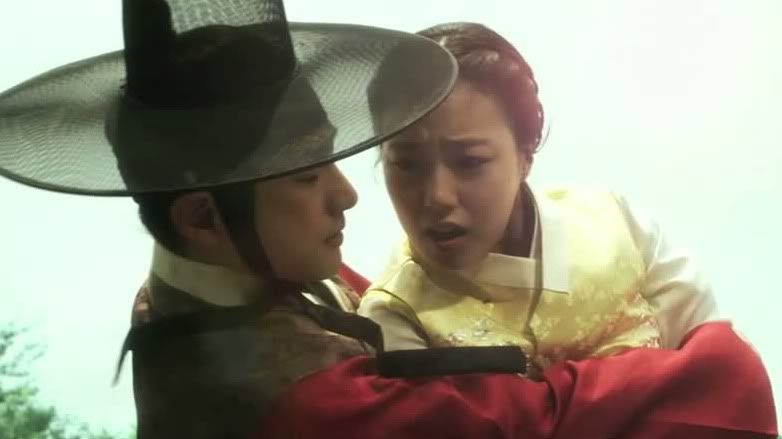
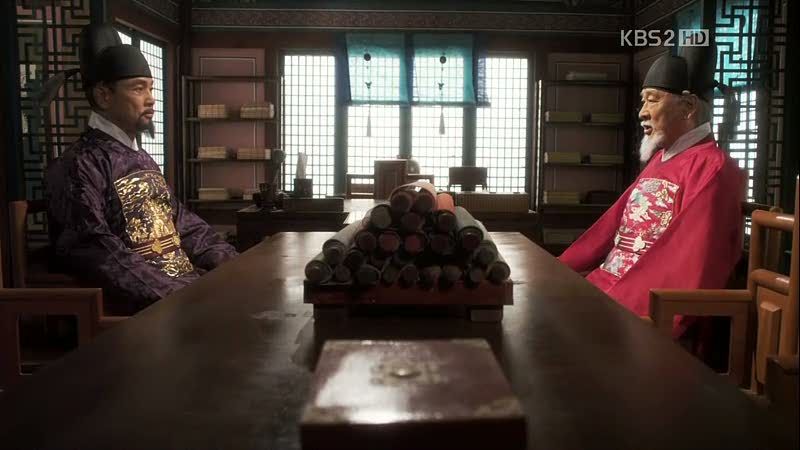
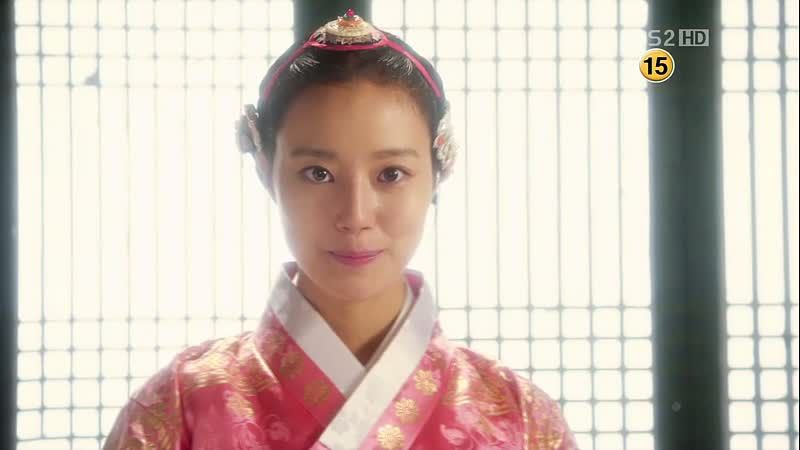

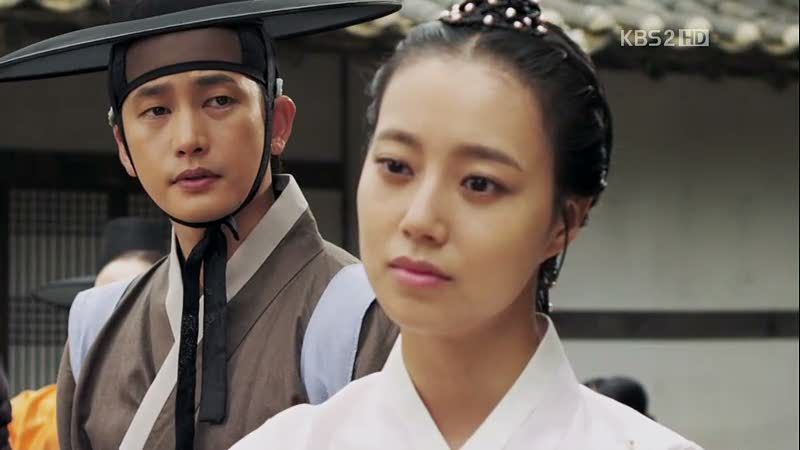
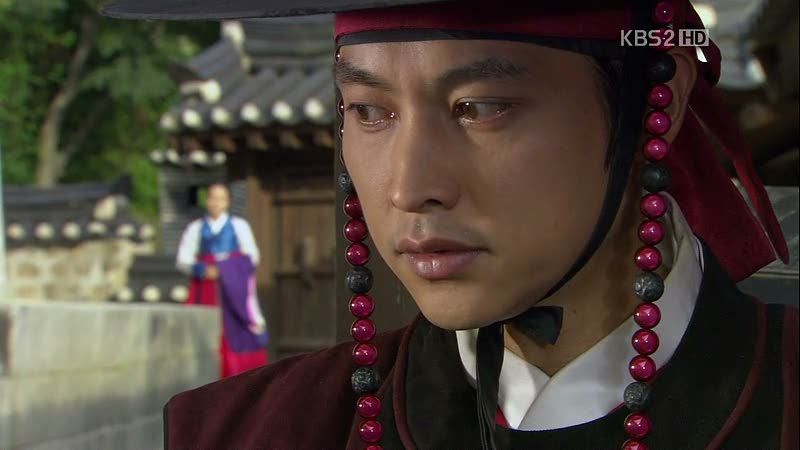
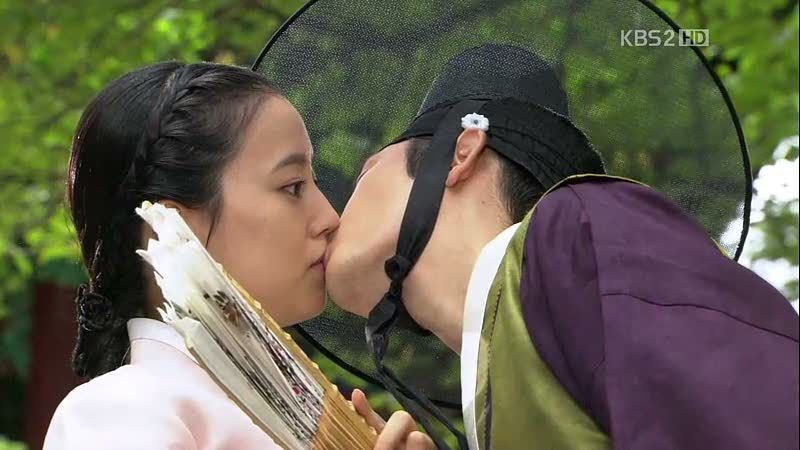
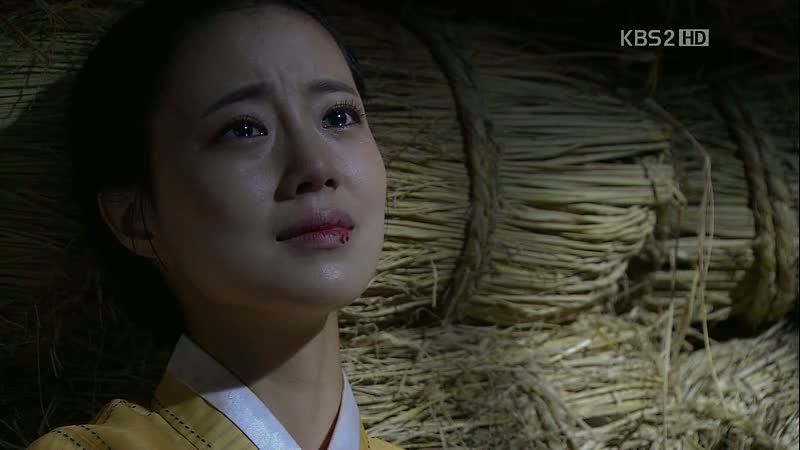

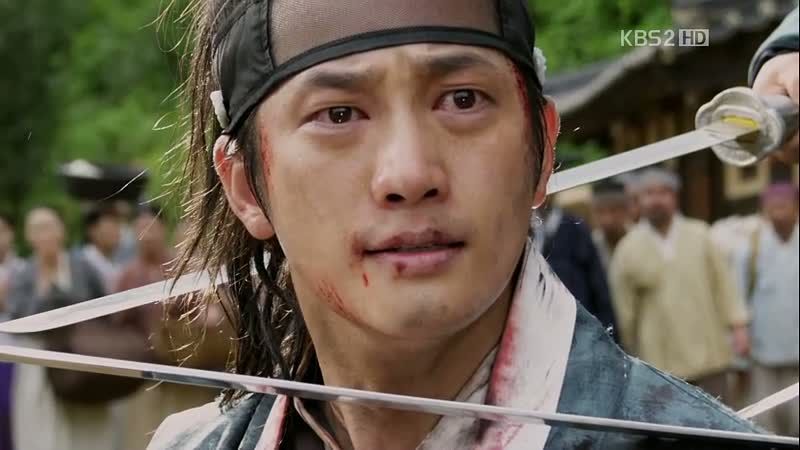
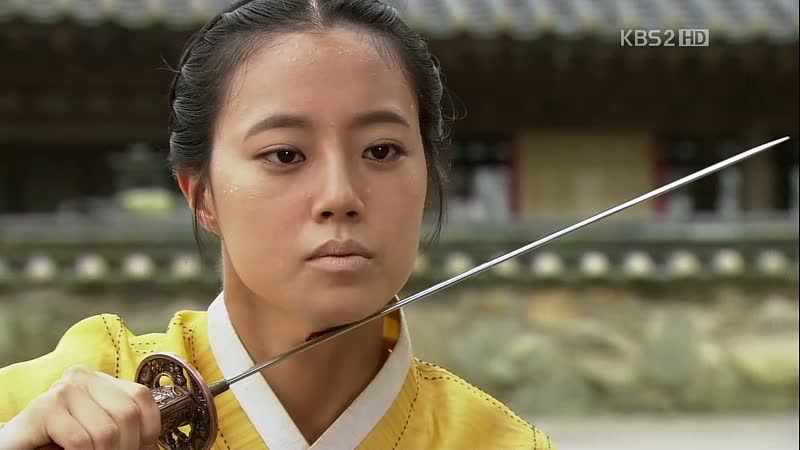
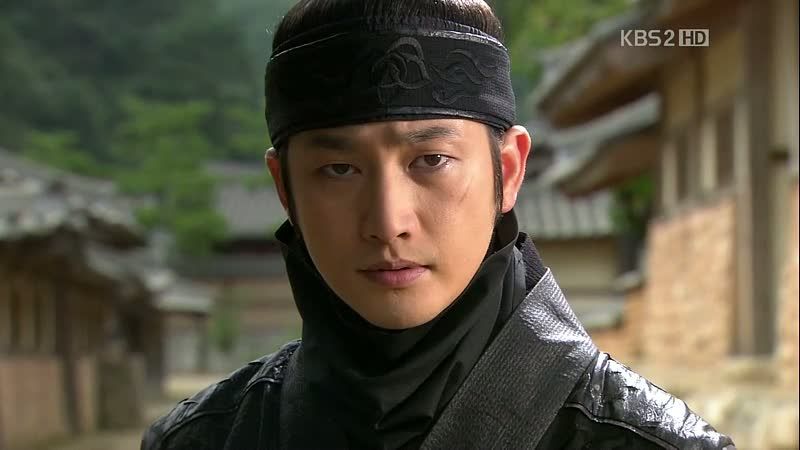
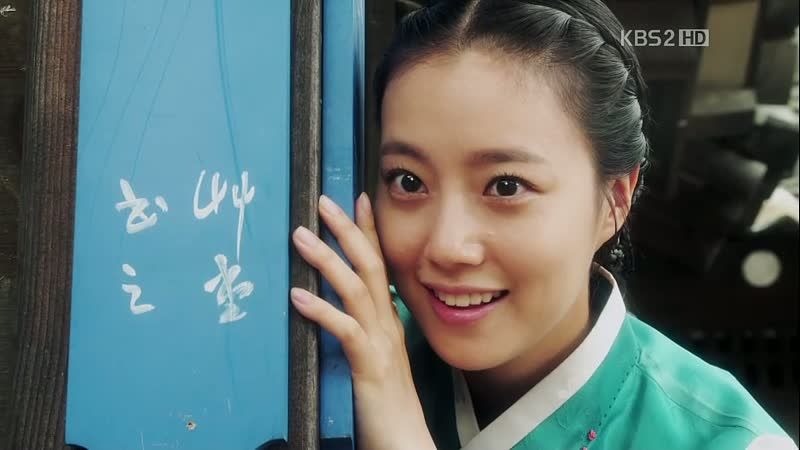
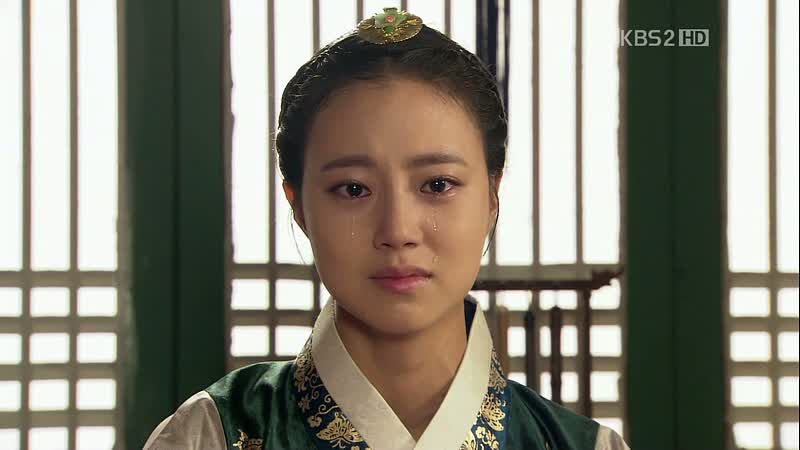
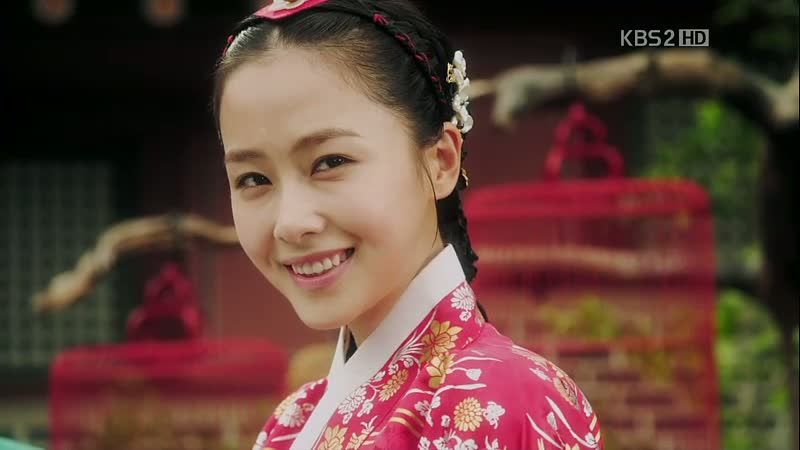
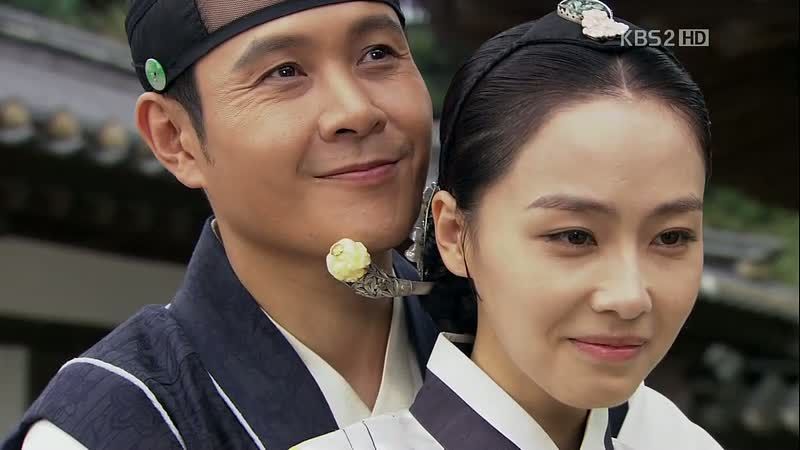
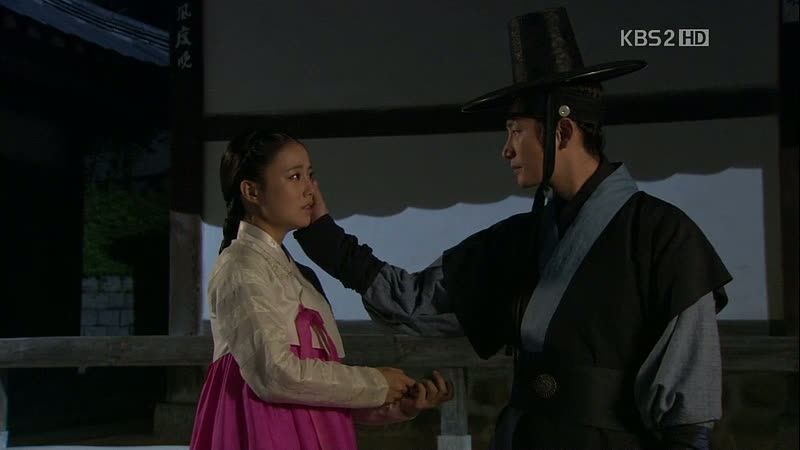
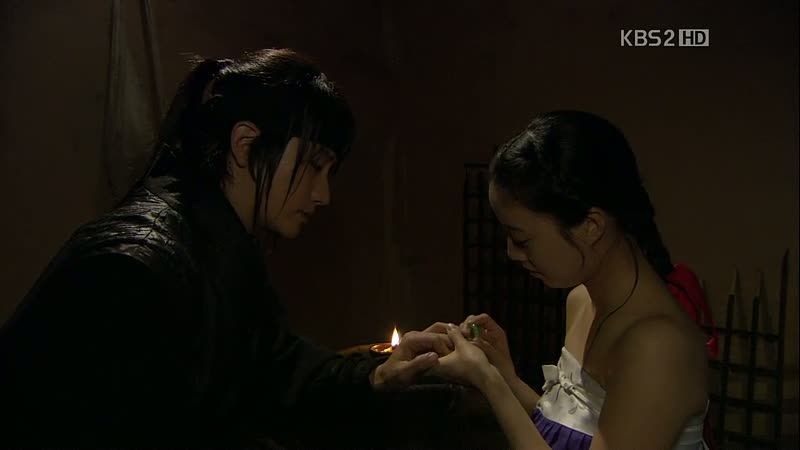
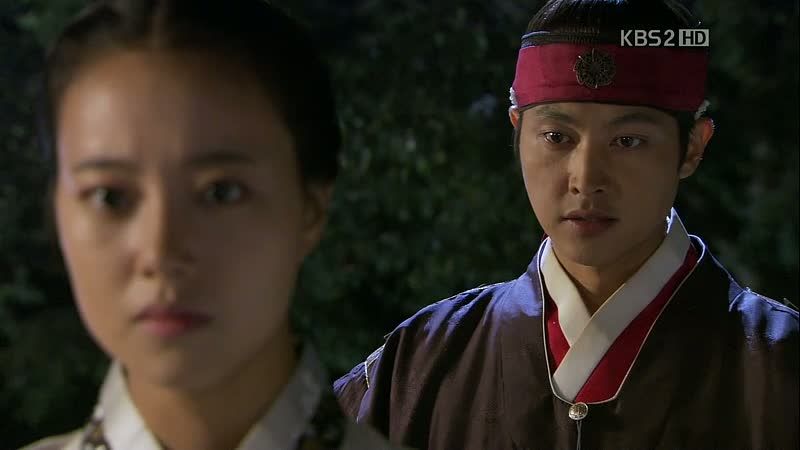
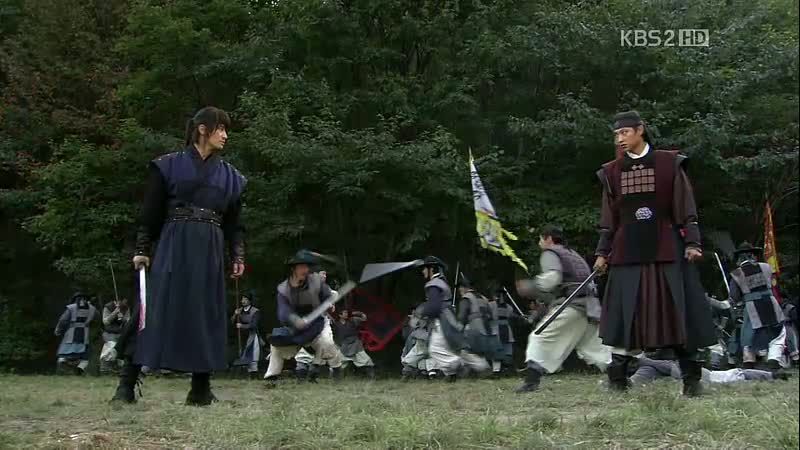
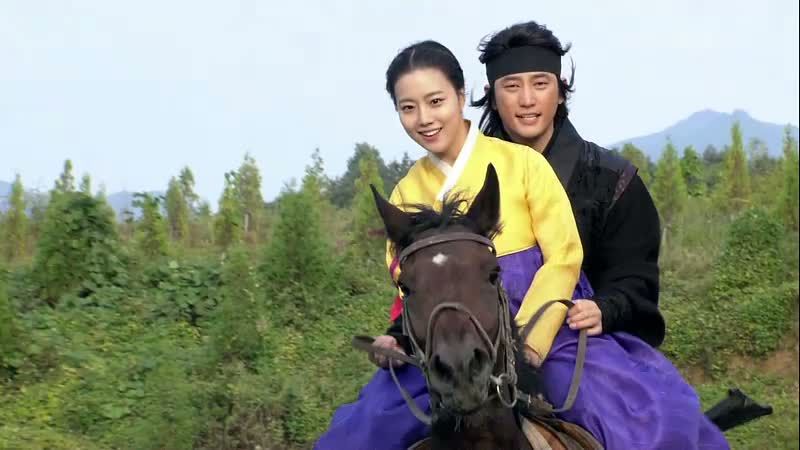
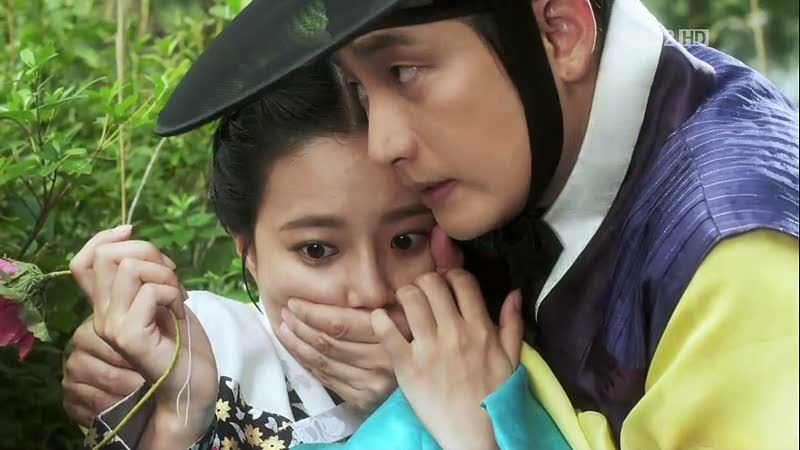
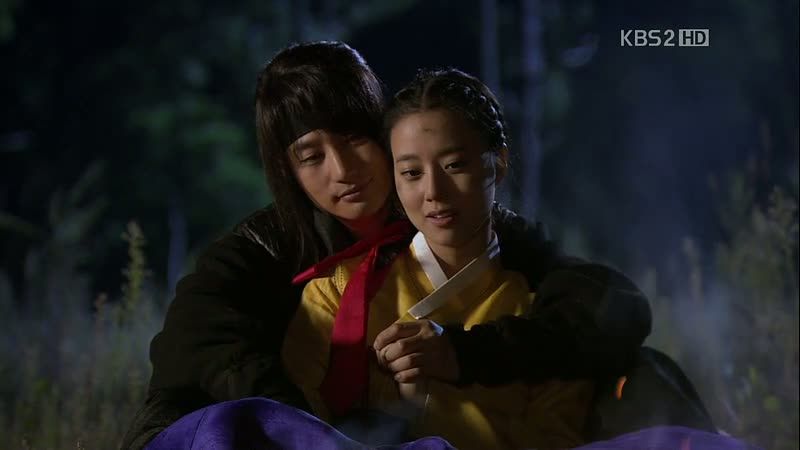

![[Beanie Review] The Judge from Hell](https://d263ao8qih4miy.cloudfront.net/wp-content/uploads/2024/09/TheJudgeFromHell_reviewb.jpg)
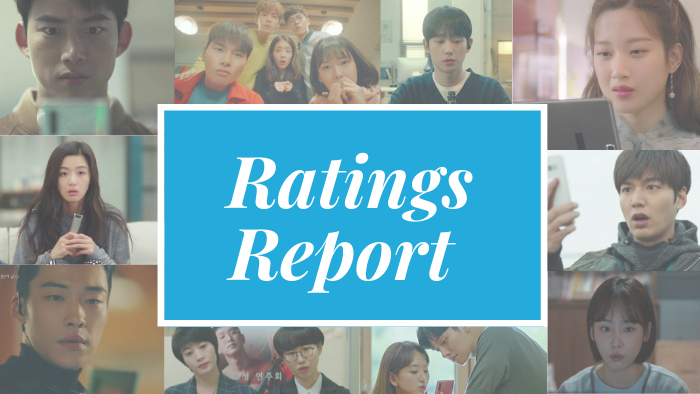



![[Drama Chat] The most overrated drama, according to you](https://d263ao8qih4miy.cloudfront.net/wp-content/uploads/2017/11/theme_alternategoblin4.jpg)

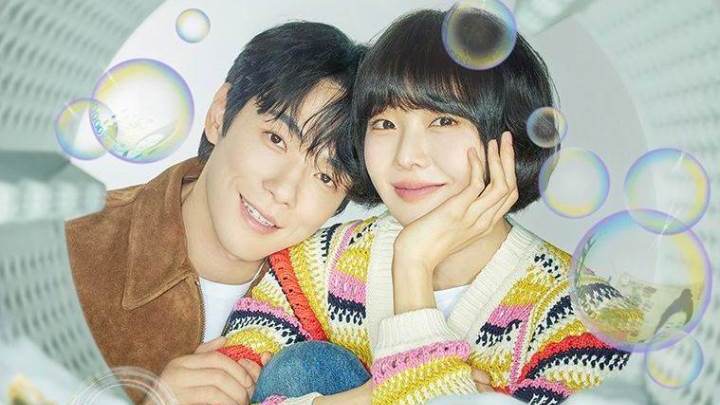

Required fields are marked *
Your email address will not be published. Required fields are marked *
1 kdramacrazy
November 24, 2011 at 2:48 PM
just finish watching this ryt now...
Required fields are marked *
kdramacrazy
November 24, 2011 at 2:49 PM
btw im first to rant here...hehehe
Required fields are marked *
cranberries
December 8, 2012 at 1:29 AM
why is this series not recapped?
i think it would be better if it was recaped like the usual..
Required fields are marked *
syer
November 24, 2011 at 7:01 PM
Just finish reading.. TQ JV for your review but why very little comment about Park Shi Hoo. I'm dying to know what you think of his acting because after watching this series, I'm a huge3X fan of him... I miss him so much and can't wait to see his next project....
Required fields are marked *
junsuaddict
December 12, 2011 at 1:53 PM
SAme here !!! i just love love love Park Shi Hoo !!!!
Required fields are marked *
2 Bluehachimitsu
November 24, 2011 at 3:01 PM
This drama was sooo good, i was totally hooked! Thanks a lot for the review =)
Required fields are marked *
Rule
January 19, 2012 at 11:47 PM
the drama had everything but the last two or should i say the ending killed it.
Not at all satisfying, (spoiler) he doesnt get his revenge, all bad ppl stay put etc...
I thinking the writers did not do a satisfying job.
Required fields are marked *
xombie
January 26, 2012 at 8:15 PM
(SPOILER) If The Princess' Man had killed off Suyang, then its writers would be accused of changing Korean history :) What's actually amazing is how much fiction they wove into the facts and kept the audience in an engaging premise that didn't seem fake. And contrary to what many feel, I actually loved the ending. It managed to find a way for the leads to have a happy ending, and that was exactly what I was praying for.
Required fields are marked *
Rachel
May 8, 2012 at 7:05 AM
I agree. I am actually extremely satisfied with the ending. I felt that it would've hit the king even harder to know that actually yes, Se Ryung was happy and would have done anything to be with
Also, not sure if anyone has mentioned this, but during the tail end of the drama, I thought it was great to show and focus on the way the female characters rose up to the occasion so fearlessly and courageously - Princess Kyung-hee moving on with life with Mi Sul, but without Jong, the Queen finally standing up to the King's manic ways, and the 2 princesses' servant girls who stood by them all the way.
This also goes back to the way the drama is titled - the "Princess's Man" - because so much of this show for me was about Se Ryung. I'm still amazed by her fearlessness and mental toughness - how she escaped time and again, and defied all the social norms.
Required fields are marked *
Rachel
May 8, 2012 at 7:08 AM
*I agree. I am actually extremely satisfied with the ending. I felt that it would’ve hit the king even harder to know that actually yes, Se Ryung was happy and would have done anything to be with Seung Yoo. And went on to have a good life without being the Princess.
*I also noticed that Seung Yoo and Soo Yang have the same initials. Haha. Interesting stuff.
BlaBlaBla
July 4, 2016 at 6:13 AM
I thought so too when I watched it, that the ending was so not good at the end of an amazingly excellent 23 episodes, but what @xombie said makes a lot of sense and after reading this series review, I actually really like the ending.. One of the best dramas of all time among all the genres.. It was brilliant..!!
Required fields are marked *
3 celestialorigin
November 24, 2011 at 3:02 PM
Thank you Javabeans. That's exactly my sentiment. Happy Thanksgiving to everyone as well.
Required fields are marked *
4 Daebaakk
November 24, 2011 at 3:03 PM
Oh god this drama is my favorite one !!! everything for me was just amazing: the story, the actors and the OST !!!! I'm not yet over it since I watched the drama 5 times already !! oh my heart !
Required fields are marked *
5 foraredrose
November 24, 2011 at 3:13 PM
Thank you so much for this! I'm definitely planning on watching this over winter break - probably in some insane marathon..
Have a great Thanksgiving!
Required fields are marked *
6 V
November 24, 2011 at 3:19 PM
I'm interested in understanding more about "sageuk-speak", and how one can be bad or good at it. Can someone please describe this in further detail? Thanks!
Required fields are marked *
LK
November 24, 2011 at 3:24 PM
I think it's the accent and the way people used to talk. It's just not like it is now.
Required fields are marked *
kit
November 24, 2011 at 3:39 PM
it's hard to explain - maybe if you compared the way the same actor differs in style between a sageuk and a modern piece?
Required fields are marked *
danna
November 24, 2011 at 4:06 PM
Blue from electricground.com has a wonderful explanation here:http://belectricground.com/2011/05/06/korean-language-and-culture-series-honorifics/
Required fields are marked *
Jaeminuf
November 24, 2011 at 4:56 PM
Blue's explanations are awesome from the standpoint of vocabulary and grammar.
However, though I'd have to go back and check, I don't think MCW messed up honorifics. Rather, her difficulty was with the delivery. But hers was far superior to a lot of other actresses', e.g., Lee Da Hae in Chuno. If memory serves me correct, LDH dispensed altogether with even the honorific endings.
Required fields are marked *
Blue
November 25, 2011 at 12:13 PM
Hi, Blue here!
I'd have to agree with anais above. My post was on the language used in sageuk dramas, but it's very difficult for actors to mess that up because the scriptwriter should already have that covered, unless the actor actually stumbles on the words.
Instead, when an actor is said to be a good or a poor sageuk actor, it's more about the delivery, including diction, tone, pauses, and perhaps even pitch.
MCW was actually not a bad sageuk actress at all, although Hong Soo Hyun was more impressive.
And thanks for linking to my post! I was wondering why there was such a sudden surge in the post view for such an old post!
Required fields are marked *
Jaeminuf
November 24, 2011 at 4:38 PM
There are several ways in which sageuk diction differs from especially modern diction.
One is the speed. Sageuk dialogue is delivered a bit more slowly than modern dialogue. The cadence (the inflection and rhythm) is different too. Think of Shakespearean dialogue, and the challenges of making iambic pentameter sound effortlessly natural and capable of conveying meaning despite syntax and vocabulary that are not familiar to modern ears.
Moon Chae Won probably was too slow, halting, flat, and stiff in her delivery, but I actually liked that about her character. It added, at first, to the impression that she was too naive (emotionally dense) to realize that her father could be so evil. Then, later as she grew into her strength, her delivery could be read as reflection of a her moral/ethical steadfastness. Perhaps because her delivery was paced so differently from the delivery of more veteran sageuk actors, her scenes forced the viewers to adjust to her pacing and to her, and I personally liked that.
Required fields are marked *
skelly
November 25, 2011 at 1:59 AM
As Lina Lamont says in Singin in the Rain, "Of course I talk! Cain't ev'rybody?"
This series has been on my "to watch list" for awhile now I have something else to listen for - thanks to everyone here for opening my eyes to a new aspect of Korean.
Required fields are marked *
Jaeminuf
November 25, 2011 at 3:54 PM
I honestly don't think MCW's diction was anywhere near as flawed as Lina Lamont's was in Singing in the Rain. Lina Lamont's diction was crass, her voice both twangy and nasal, etc. She may as well as have been smacking chewing gum loudly the whole time. Let's say that pigs would fly and hell would freeze over before anyone mistook Lina Lamont for high society.
MCW's - as I said above - was very halting in her delivery, but I found it fitting for her character. No one would ever mistake that she was anything but a yangban lady. Very much a ladylike yangban lady (vs. Hong Soo Hyun's princess who was much more fittingly imperious.)
Required fields are marked *
beggar1015
November 25, 2011 at 9:48 AM
Perhaps you have to be able to understand Korean to ultimately understand "sageuk-speak." I had absolutely no idea MCW was doing an iffy job at it and so had no problems with her. In return, I suppose if a Korean viewer was watching an actor from Brooklyn trying to speak with a New Orleans accent, the Korean might not realize what a hatchet job was being done.
Required fields are marked *
7 jossy
November 24, 2011 at 3:19 PM
skipped the ending stanzas because Im planning on finishing it now lol I've just spoilt myself but ho-hum it's not like I knew the historical background anyways. sssankyou!
epic review JB - seriously it felt like I was reading an academic essay :)
*cue Dracula voice* I Vant your braaain...
btw Happy Thanksgiving!
I'm thankful for Damabeans!! (among other things of course)
Required fields are marked *
8 Kakashi
November 24, 2011 at 3:21 PM
been waiting for this, thanks! ahhh, I think I have to watch it AGAIN now, such a great drama...
Required fields are marked *
Kakashi
November 24, 2011 at 3:23 PM
... but WBDS also is in my top five favourite sageuks
Required fields are marked *
dany
November 25, 2011 at 9:37 AM
Oh WBDS- I miss so boys so much!
Required fields are marked *
dany
November 25, 2011 at 9:38 AM
I meant *those boys, sorry, the thought of the last episode is still troubling me.
Required fields are marked *
9 LK
November 24, 2011 at 3:22 PM
*Spoilers, careful*
The Princess' Man was such an amazing drama. It's been a while since my last historical drama and when I first watched this drama, I fell in love with it right away. I loved how the characters evolved though the drama. The story line was intense and the love story was beautiful. The main characters were perfect, but so was the secondary characters. I thought the princess and Jong were simply amazing. It was beautiful to see their relationship grow over time. I must say that the saddest part of the drama was watching what happened to Jong in the end... As for the ending, I thought it was perfect. You would think that Seung-yoo would have killed the King and all that stuff. And at first, I was like "What? After all this and the King gets to live?". But watching the ending scene, when he saw Se-ryung and Seung-yoo together and happy, I thought it was perfect.
Required fields are marked *
Jaeminuf
November 24, 2011 at 4:39 PM
The king has to live. That part of history can't be fudged, I'd think, unless the drama intended to present an alternate history.
Required fields are marked *
SuperFanGirl
November 24, 2011 at 9:14 PM
What actually broke my heart while watching this drama was when Jong was executed Mongolian-style (being tied to oxen and torn to pieces) and Princess Kyung-he eventually becoming a slave whilst pregnant! I was hoping that they would show what happened to the poor princess and her child (oh, let's not forget her awesomely loyal handmaiden). And btw, what has become of Seung-yoo's sister-in-law and niece? Were Se-ryung and Seung-yoo able to keep their yangban status ('coz they technically still have a slave in the household)?
Required fields are marked *
10 houstontwin
November 24, 2011 at 3:27 PM
Thanks for your review. I really enjoyed the Princess' Man, but unlike, I have not yet reconciled myself to the ending. There is a difference between seeking revenge and seeking justice. While it might be ok for Seung Yoo to forgo revenge if only he were hurt, the many victims of the king deserve justice, and I am not so sure that SY should be so willing to forget the past. Moreover, I can't help but feel disappointed that despite his evil ways, the king is comforted in the end to see his daughter and grandchild. I really wanted to see greater punishment or greater remorse!
Required fields are marked *
diorama
November 24, 2011 at 10:25 PM
I felt that way too, until I remembered that historically, Suyang went on to have a long and pretty prosperous reign. I don't think the drama would have gone so far as to kill off an actual king, even though this part of his life was heavily dramatized. I remember thinking in the beginning of the drama - before he went all murderous - that he would be a better ruler than Munjong or his son, objectively speaking. I ended up satisfied with his portrayal in the drama, which struck a balance between historical accuracy and the integrity of the drama itself.
Required fields are marked *
11 diasy
November 24, 2011 at 3:28 PM
I agree i was a bit disappointed in the end. But overall good drama! And honestly I never pitied Myun when he died i wasnt even a bit upset, i thought he deserved it XP
Required fields are marked *
houstontwin
November 24, 2011 at 4:50 PM
I really did enjoy the drama a lot. Maybe that's why I had higher expectations for the ending. I agree with you about Myun's death. It was deserved.
Required fields are marked *
Kat
November 24, 2011 at 5:54 PM
Myun for me wasn't a character to be pitied (heck, I hated him declaring "You're mine" every single time he has contact with Se-ryung!), but when he died I actually felt a little sadness for the friendship that he and Seung-yoo had, something that could have strengthened in the midst of all the fighting going on. Even then, you could see that Seung-yoo didn't want his friend to die, and I was a little sad for that.
Required fields are marked *
houstontwin
November 24, 2011 at 6:01 PM
I think that it is to the credit of the actors and the writers that we feel that poignancy of their relationship torn asunder.
Required fields are marked *
Aye
December 13, 2011 at 11:51 AM
I didnt know what to make of Myun. I wanted him to redeem himself but he had gone way too far in some instances that I thought it'd be best if he was killed. And then they gave us that ending where he sort of saved Seung Yoo's life, albeit at the very last moment. And I'm glad Seung Yoo didn't end up having to kill a (former) friend. I thought that was a great way to end that friendship.
Required fields are marked *
Birthday Girl
July 21, 2012 at 10:17 PM
I was more upset when Myun's friend JoBoen died! He was so cool~! And while Myun did piss me off at the end... I felt a lot for him--idk why.
Anyalyn
October 27, 2012 at 9:52 AM
My sentiments exactly! I hate it when he gets all possessive, I hate that he betrayed his friends, he was just a useless government official puppet for Suyang, I didn't pity him either but until that part where he was close to death he told Seungyu he was always the laughing stock among them, I was like damnn for once I felt for this guy. Sob sob.
Such a solid sageuk. Compelling storyline. Love how it ended with the King watching over them.
Required fields are marked *
Jadielaw
June 23, 2013 at 11:56 AM
I guess I'm the only one who actually started shipping Myun over Seungyu and shed some tears when he died.
Required fields are marked *
12 kit
November 24, 2011 at 3:31 PM
skjdnskjnfksjdnf thank you so much for this. i was one of the readers who kind of expected the princess' man to be a weepy melodrama, full of I CAN'T BE WITH YOUs which for me, seemed jarring due to the historical context of the time ... even my love for park shi hoo and the high ratings didn't let me give it a chance.
but now ...
HELLO MARATHON.
Required fields are marked *
13 windjae
November 24, 2011 at 3:50 PM
i love this drama...the casting
is perfect!! especially for park si ho..oh gawd he is so lovely
Required fields are marked *
14 trixicopper
November 24, 2011 at 3:53 PM
Thank you so much! I loved this drama. It just worked for me. :) I guess sometimes it's a good thing I don't speak Korean. Lina Lamont! Thanks so much for THAT picture! :)
Required fields are marked *
15 mirabeau
November 24, 2011 at 4:04 PM
Thank you, thank you SO MUCH for finally writing about The Princess' Man ! This drama definitely deserved to be properly ranted about. Thank you so much, sincerely :D
Required fields are marked *
16 Lena S.
November 24, 2011 at 4:06 PM
i just started watching this drama 2 days ago, i'm on episode 10, so i'm not reading this review for now but i'm just thankful that you talking about it.
I'm really loving so far and for the first time the political plot is so engaging for me that sometimes outshines the romance.
Required fields are marked *
17 danna
November 24, 2011 at 4:08 PM
You have fantastic timinh JB, I just downloaded the episodes and am about to start a marathon....Thank You so much!!
Required fields are marked *
18 diorama
November 24, 2011 at 4:10 PM
Love this analysis - thank you!
One more thing I adored about Princess Man was the number of awesome side characters. Kim Roe Ha as Jo Suk Ju was utterly fantastic, but the women especially were scene-stealing: the Sister-in-Law, the bar Madam, and my favorite Cross-dresser Gisaeng. For me, their scenes were little highlights in the drama that I looked forward to in each episode.
Required fields are marked *
Jaeminuf
November 24, 2011 at 4:43 PM
I was so happy that Kim Roe Ha got to play a good character for once. And he was so good playing this good character. The scenes of him and Ah Kang were too precious.
And aye aye to the cross-dressing gisaeng. The drama so did not need to throw that in, yet it did. I was a bit astounded. They didn't do a lot with that aspect of the character, but that the drama never lets you forget that she was a he was radical.
Required fields are marked *
amee
November 24, 2011 at 6:05 PM
I loved the crew at the gisaeng house too! Suk Ju was awesome.
Required fields are marked *
Kat
November 24, 2011 at 6:07 PM
Jo Suk Ju! He was so awesome! I cried when Shin Myun was questioning him, telling him he could live if he told of Seung-yoo's whereabouts and he said, "You're mistaken about me. If I betray my dongsaeng to get out of here, I wouldn't be able to live with the shame," or something like that. I also liked that while Seung-yoo lost his real family, he managed to gain another one at Bing Ok Gwan.
Required fields are marked *
Rachel
May 7, 2012 at 11:31 AM
Couldn't have said it better!
I was like "Amen" for all the times he counselled Seung Yoo about eloping with Se Ryung and leaving behind his vengeful feelings against GP Su Yang. He was the wise older brother who had Seung Yoo's back all the way. Much needed in this drama!
Required fields are marked *
19 alyst
November 24, 2011 at 4:14 PM
my favorite drama of the year.
Required fields are marked *
20 Lucky
November 24, 2011 at 4:15 PM
Just finished marathoning this drama last week. It was amazing! Thanks for the review, JB!
Required fields are marked *
21 78446
November 24, 2011 at 4:29 PM
Thanks JB for the wonderful review. I was surprised at how much more interested I was at the politics than at the romance, when the romance was the reason I started watching it in the first place. I think it was because all the characters were so compelling that you couldn't not care about them. The dynamics of the relationships were so interesting: fathers and sons, fathers and daughters, husband and wife, teacher and student, the fate of the 3 friends, the adopted gibang family...
[SPOILER] I'm still reeling from Jong's death. Myun, I felt, deserved to die and I know it's already history and everything but I really really wanted Suyang to die. Especially after he put Danjong, Keum Song and the Jiphyunjun scholars to death. [END SPOILER]
Anyway, thanks again for this awesome read and Happy Thanksgiving, or Whatever to you too!
Required fields are marked *
houstontwin
November 24, 2011 at 4:55 PM
Jong was a lovely character. I guess that's how we knew that the drama would kill him off. After all, they couldn't kill the leads.
Required fields are marked *
22 dangerousgoods
November 24, 2011 at 4:46 PM
Hiya JB,
Thanks for doing a series review on The Princess's Man! I know both you and GF had a lot on your respective drama-review plates; but I wish you guys were able to do an episode by episode review, 'cause this drama totally deserves it. This drama was one of my top dramas this year, and one of the few I actually saw to completion. Everything about the drama was alluring - the costume detail, the actors' expressiveness, the perfect music score (The Princess's Man has made me think twice about dismissing Italian opera) the end of every episode had me hankering for MOAR, and searching like crazy for subs (not gonna lie when I occasionally wished I was Korean). I'm glad you added your thoughts on the ending - when I watched the final episode; I felt a little odd; like I agreed yet disagreed with where the writers were coming from - so hearing your perspective was like a breath of fresh air. Once again, awesome review JB!
Required fields are marked *
23 Jaeminuf
November 24, 2011 at 4:51 PM
Javabeans, thank you for this review. Of all the reviews you've written, this one is my favorite. When I finished the drama, I found it overwhelming to sift through all my thoughts about the drama, so I let those thoughts remain amorphous and unorganized. I'm always impressed with Dramabeans, but I find especially impressive the insightfulness of this review.
Lina Lamont, though... as I wrote in an above comment, I liked MCW's delivery for its flaws. Lina Lamont, though, is unforgivable. It could be used as an instrument of torture.
Required fields are marked *
24 thunderbolt
November 24, 2011 at 4:52 PM
Ooh, what a pleasant surprise! I thought you were saving this for the year-end review. But this is much better — meatier and yummier. Off to read, muah!
Required fields are marked *
25 49ers
November 24, 2011 at 4:55 PM
OMG, I've just marathoned this drama in 2 days (since I have some days off for Thanksgiving). Thanks so much for your amazing review, Javabeans :X:X:X
Required fields are marked *
Rachel
May 7, 2012 at 11:34 AM
WOW. 2 days?! What an achievement :D
Required fields are marked *
26 bluelime
November 24, 2011 at 5:06 PM
thanks for this series review!! =)
Required fields are marked *
27 YL
November 24, 2011 at 5:15 PM
I LOVED THIS DRAMA. Thank you Javabeans for the awesome review that is so befitting of this drama. Easily my favourite sageuk (beats out ROI for me, personally) and one of the best 2011 had to offer. Thank you again JB! :)
Required fields are marked *
28 ninsarama
November 24, 2011 at 5:21 PM
I'm so glad you watched this one! It was amazing and beautiful!
Required fields are marked *
29 Chicsassymom
November 24, 2011 at 5:27 PM
I watched this drama twice now, and will probably do another round again! Thanks for sharing the love...:))
Required fields are marked *
30 moi
November 24, 2011 at 5:31 PM
Damn, the review was good! Hopefully you will review Man Of Honor after it finishes airing. Because it's a really good drama and it should gain some recognition and I would like to hear your opinions about Man Of Honor.
Required fields are marked *
31 Bellamafia
November 24, 2011 at 5:34 PM
One thing I'm so curious about.. the cross-dressing gisaeng is the actor really a guy? his/her voice sounds like a man, but the face.. she/he sure looks like a girl.
Required fields are marked *
Bellamafia
November 24, 2011 at 6:13 PM
never mind. Just found out he's a transgender. Very impressive character and actress :)
Required fields are marked *
Rachel
May 7, 2012 at 11:21 AM
Indeed. Love all the interesting characters in the gisaeng house. Was a little sad that javabeans didn't cover them much in her review :(
Required fields are marked *
32 Hannah25
November 24, 2011 at 5:40 PM
I love the drama, the actors, the music and the plot and this would have been my sageuk of the year, and indeed one of the best all round dramas. It still is awesome but for me, Tree with Deep Roots takes the crown.
Still we have been very lucky with these two dramas this year!
Required fields are marked *
sunnyl
November 25, 2011 at 8:15 AM
Agreed! very lucky indeed to have TPM and TWDR this year. Only one month left for this year , and I wonder if we will have more great dramas coming.
This has been a good year drama-wise: Secret garden, 49 days, dream high, best love, city hunter, scent of woman, (maybe protect the boss too), TPM, TWDR, (maybe flower boy RS too) and many ok ones (vampire prosecutor, BFB, Man of honor, CYHMH etc).
Can't wait for the year end review already!
Required fields are marked *
Rachel
May 7, 2012 at 11:36 AM
Agreed! Looking back on 2011 in the year 2012, it was a really good year of both quality and fluffy dramas - a good balance of the 2!
Required fields are marked *
33 ...
November 24, 2011 at 5:42 PM
thank you so much for such a thorough and thoughtful series recap. i definitely wouldn't be able to express it so well myself. i completely agree with everything you said. it was a beautiful drama to watch, and i really loved how the plot wasn't predictable. Perhaps it was good that i went into it expecting it to be sad, so that by the end, it was a pleasant surprise to find that it had such a sweet/peaceful ending (tbh,one of the main reasons i started watching it was because of park shihoo so it was nice to see that it wasn't sad, and he didn't die :P)
Required fields are marked *
34 tadaaflo
November 24, 2011 at 5:54 PM
ohh.. talking bout the princess man remind me of bu bu jing xin!! its not the same story but i am compelled to watch bbjx right after tpm... loved it!
Required fields are marked *
35 amee
November 24, 2011 at 5:55 PM
Thanks a lot for the amazing review! You basically summed up everything perfectly. This show completes me *__*
I haven't watched many saeguks from what I can remember (the last one I watched completely was Legend), so this one is easily my favorite. I loved how the story changed 180 degrees after the first few episodes. Forever in love with Park Shi-Hoo in his black assassin outfit :Q___
Required fields are marked *
alove
November 24, 2011 at 6:08 PM
Gah, PSH looked amazing as his vengeful self. I can't even... *sigh.
Required fields are marked *
36 sm1leitsamy
November 24, 2011 at 6:00 PM
yay!! the story was very compelling and the music was wonderful. i didn't expect to like it but decided to check it out cause of all the hype around it, and decided that it really does deserve the hype.
like you mentioned, i really love how they worked in the fictional story with the historical one. i know very little about korean history, but there was one scene near the end where su-yang is so mad at se-ryung that he's like "ok fine! erase se-ryung's name from the family registrar and never let her appear before me!" or something that like, and i remembered thinking that it was so clever because you could say that the reason that se-ryung's name was never in the historical records was because her father disowned her. hmm... did that make sense? haha i hope so.
i absolutely loved princess kyung-hye and jong's storyline because jong is the most adorable, genuine man EVER, and i'm happy that they both had true loving moments near the end of the series.
i was a park shi-hoo fan after queen of reversals because he's so charming, but now i'm in love <3
thanks jb, and hope you're having a happy turkey day ^^
Required fields are marked *
mooses
November 25, 2011 at 9:08 PM
Seryung is interesting because she's actually based on a rumored daughter of Sejo. Officially, he only has one daughter (Seryung's sister) but in the unofficially (i believe), it is said that Sejo had another daughter, and that she fell in love w/ Kim Jong Seo's grandson. (2 of that daughter's rumored names are Sehui and Uiryung, so i guess the drama just combined the 2 names to make Seryung)
Required fields are marked *
37 alove
November 24, 2011 at 6:06 PM
Thanks for the downloads! I forgot how beautiful this ost was. New study music :)
Required fields are marked *
38 dramabliss
November 24, 2011 at 6:16 PM
Thanks, JB. Wonderful review, as always.
I love TPM, and I agree that it's one of the best dramas of the year.
But I am also in awe of Tree with Deep Roots. It's still airing and have yet to see the second half, but it's been a most compelling show and, for me, may yet topple TPM as the sageuk of the year.
Relating the two dramas to each other, it makes me very sad that King Sejong the Great had a son like Suyang/Sejo (he has not appeared so far in TWDR) who took after his grandfather, the bloodthirsty Taejong. Although historically the coups/usurpations etc. of thrones and the accompanying gore is more the norm than the exception, I wonder why a smart and wise King Sejong was not able to raise his sons in his ideology and philosophy.
Required fields are marked *
ar_arguably romantic
November 24, 2011 at 10:09 PM
It makes me sad too! I can see the Sejong of TWDR rolling in his grave to see how Suyang/Sejo turned out. But with almost 20 songs, i guess it's hard to raise them all to follow in his footsteps. And I guess he had put more effort on raising Munjong.
Required fields are marked *
39 tari anantatoer
November 24, 2011 at 6:17 PM
Thank JB, it's another SKKS experience for me, loved it until those last minutes. I prefer sad ending for this one with the last scene an imaginary one, seeing them riding horse together or something like that and the King is redeemed but live in remorse forever and ever.
Required fields are marked *
40 Firewife5
November 24, 2011 at 6:19 PM
Thanks for such a well written review. This drama definitely tops my best saguek list. SR ended up being one of my favorite Kdrama heroines ever. At times my love for her even overshadowed my love for SR. No easy feat considering he was played by PSH! Aaaw, now I feel the need for a rewatch!
Required fields are marked *
Firewife5
November 24, 2011 at 6:22 PM
Feel like I should reword the first line to "Thanks for yet another well written review"!
Required fields are marked *
41 Kat
November 24, 2011 at 6:21 PM
What a nice surprise! Thanks for reviewing this! I would've liked a simul...recap (?), but this is enough... it makes me want to re-watch the series!
As for the ending, I too was disappointed with it. So Seung-yoo just manages to find peace? I would've thought that with him becoming blind, he would have constant nightmares of his father dying in front of him or his teacher and friend dying, or all the other people being sentenced to death by Suyang replaying in his mind's eye (kind of like Lee Jin Pyo in City Hunter ), but in the end I became contented with how they tied the ending. I'm a little irked that Suyang, after all that he did, still got a his peace of mind back after finding out his daughter didn't really die, but the expression on Kim Young Chul's face when he saw Se-ryung and Seung-yoo alive made me somehow forget during the last five minutes of episode 24 that I hated Suyang during most of the entire series. :D
Required fields are marked *
42 JAM
November 24, 2011 at 6:33 PM
thanks for clearing this up. I've been so tempted to watch it but for the wrong impression that its all doom and gloom a-la-Romeo and Juliet. With this and S2 recapping it, its a go for me. thanks!!!!!!!!!!!
Required fields are marked *
JAM
November 24, 2011 at 6:34 PM
i meant S2 subbing it. :D
Required fields are marked *
amee
November 24, 2011 at 6:38 PM
you won't regret watching it! :D
Required fields are marked *
43 JD
November 24, 2011 at 6:37 PM
You don't know how happy I am to see you review this drama. Yes, I was disappointed with the ending, but I didn't realize it was trying to comply with the actual historical event (that is, the king must live), so I'm seeing it in a more favorable light. The couples completely win me over, though, and the music and cinimatography was done well. Haven't loved something this much since Hong Gil Dong.
Required fields are marked *
44 tun teja
November 24, 2011 at 6:37 PM
I'm actually having love-hate relationship with saguek after hong gil dong & chuno ending,but now I'm definitely will watch this drama regardless the ending..thanx..
Required fields are marked *
45 Kiongna
November 24, 2011 at 6:40 PM
Thanks yet again dear Javabeans, I loved this drama so very much.. and incidentally it was the catalyst drama that turned my father (a big sceptic, critical and yet brilliant near 70 year old grandpa) to a full blown k-drama (esp. sagueks) addict ... woot woot if only now he has MBC and not just KBSworld on his telly, I would like him to watch Tree with Deep Roots that is also so awesome ahh nevermind he is quite happy with
King Gwanggaeto at the moment.. or hook up my lappie to the telly.. :)
Loved your thoughts as usual, I'm so thankful that there is Javabean in our K-dom world. What a blessing you are and all your team here.
Hugs E
Required fields are marked *
46 neener ~ Inside the Magic Shop ~
November 24, 2011 at 6:41 PM
haven't watch this YET....I will and I'm pretty sure I'll enjoy this!!!
Required fields are marked *
47 Linda165
November 24, 2011 at 6:44 PM
The drama is epic and this review is epic. Thanks JB. I cried again just reading it.
"along with that traitor Myun" ufff you don't know how much those words hurt me :( No... I'm not going to start, I promised to stop talking about Myun :(
I think I just might marathon TPM this weekend (for the third time!)
PSH ♥♥♥♥♥♥♥
Required fields are marked *
48 elle loves kdrama
November 24, 2011 at 6:44 PM
Thanks for your recap! It was an amazing series, indeed. I haven't been up all night, and rushing home from work to catch the next episode of a drama in a looong time. I was initially drawn in simply because of Park Shi Hoo (let's be honest), but there was so much more to this drama than the eye candy. I don't recall crying so much in a while either.
All the characters drew you in the story. Add to that great plot, editing, soundtrack, cinematography and you get one of the best dramas this year!
Required fields are marked *
49 ck1Oz
November 24, 2011 at 7:01 PM
Thank you for the review. I haven't. watched this series precisely because I was dreading the ending. I did know but was still not compelled with starting it. However after reading that the drama was well written and had well developed characters- seriously considering it. Now I've read 3 comments about Jong dying in the end and dreading it. Can anyone just put me out of suspense and tell me how he died what it meant for his poor wife? Thanks. Oh and even though I didn't watch the series bought the soundtrack . That 1st song was awesome and keeps haunting me. Might need to hunt for the lyrics after this. The lyrics are always so poignant in Korean dramas as well.
Required fields are marked *
elle loves kdrama
November 24, 2011 at 7:14 PM
[SPOILER] Jong gets accused of treason against the king and is therefore executed. Part of the reasons it's pretty sad for his wife is because she spent the better part of their marriage emotionally detached from him, until she turns around and starts falling for him [END SPOILER]
Required fields are marked *
ck1Oz
November 25, 2011 at 7:56 AM
Thanks.
Required fields are marked *
50 Kimchi
November 24, 2011 at 7:37 PM
JB, this is excellent review, as usual. I wonder if someone would be willing to review how the actors fared?
PSH transformation in the series left me stunned. I'm not sure but it could be the mane that got me ...
Required fields are marked *
Southerner
November 25, 2011 at 12:42 PM
^_^ luved the mane!!
Required fields are marked *
Rachel
May 7, 2012 at 11:41 AM
Agreed! From a flirtatious, life-loving man to a dark, sorrowful, moody and listless avenger. WHOA at the change.
It wasn't just the mane, it was the look of world-weariness on his face. And he just looked like he was carrying the weight of the world on his shoulders.
Required fields are marked *